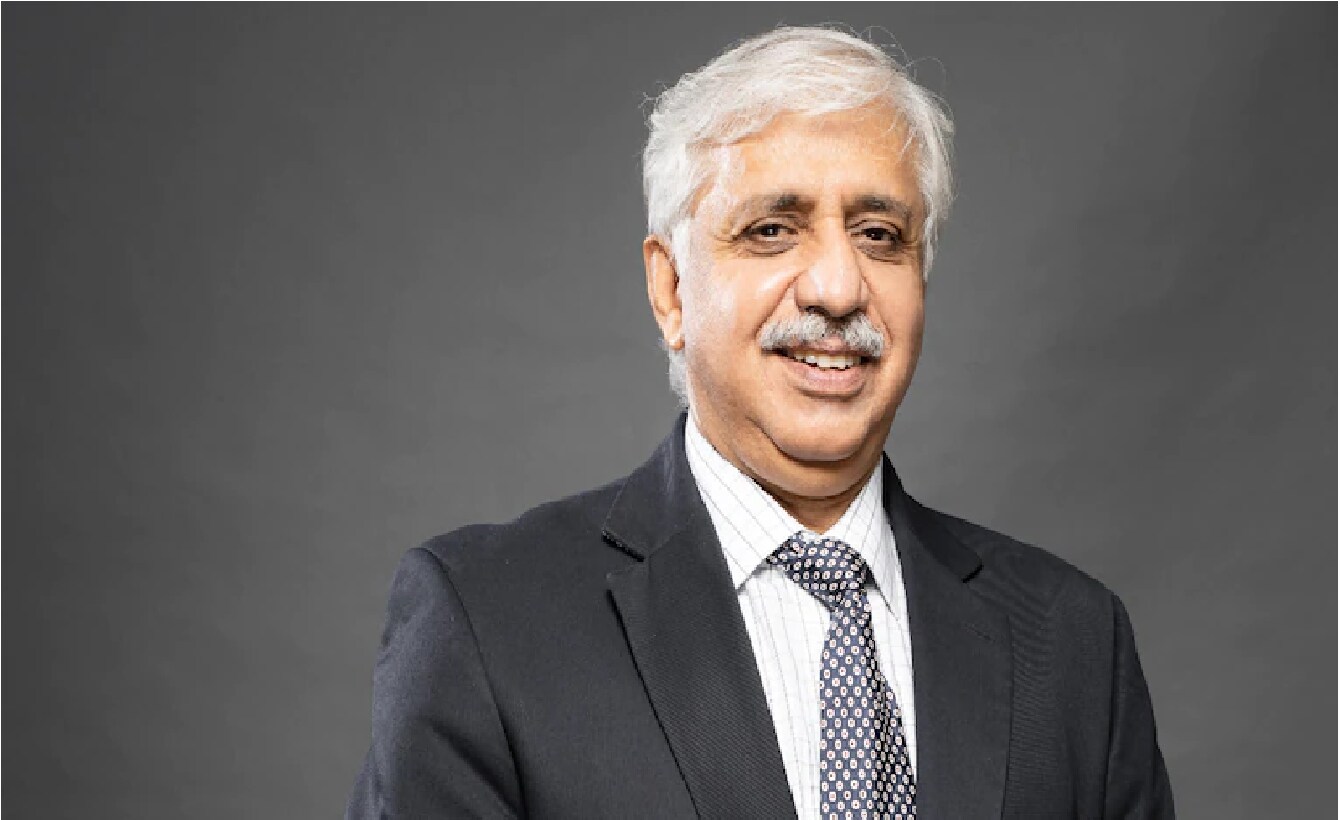In 1988, when Chanakya Chaudhary joined Tata Steel as a young graduate, an engineer trainee, little did he know that he would have to climb mountains to pick up lessons on endurance, team spirit, and leadership. Four years before Chaudhary came on board, the home-grown steel major had set up Tata Youth Adventure Centre, today popularly known as the Tata Steel Adventure Foundation. This was initiated by the legendary mountaineer Bachendri Pal, the first Indian woman to climb Mt Everest. Chaudhary, who is the current vice-president of corporate service at Tata Steel, shares Tata Steel’s less-known legacy in sports with Storyboard18. The company started Tata Youth Adventure Centre as an outbound leadership institute to push trainees to withstand unpredictable situations. Chaudhary and a team of trainees had to reach Uttarkashi through several tough treks. He admits, to date, it is one of the most challenging exercises he took up. The programme was extra special because of the presence of the legendary mountaineer (Pal). She never let them give up, even when an avalanche hit their trail. The journey to Uttarkashi taught Chaudhary and his team lessons that they would never have got in a closed-door induction session. Since then he believes “Sports is a way of life.”
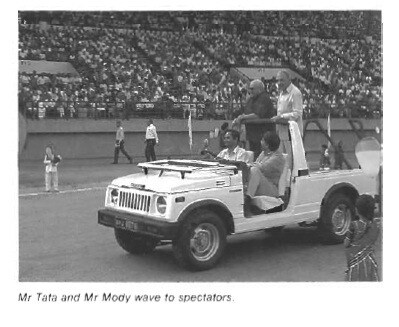
Steel and Sports
Tata Steel was established in India as Asia’s first integrated private steel company in 1907. Over the last century, the company has made several historic marks in the area of sports. In 1920, Tata Steel’s first chairman Sir Dorabji Tata personally financed the first Indian team for the Antwerp Olympics 1920. That was 27 years before India even got its Independence. The six-member all-male team had four athletes and two wrestlers. Since then, the company has encouraged and invested in talent and provided infrastructural support. Chaudhary says the brand has been mindful and has believed in the power of inclusivity and diversity. For instance, in 1927 Tata Steel established the Jamshedpur Athletic Club and started sports competitions for working men, women and their children. “We started working on areas like workplace ergonomics, keeping in check work-life balance, much before they became buzzwords. We believe sports has been helping us to bridge several need gaps,” adds Chaudhary. So, with the credentials and work to back it up, why doesn’t Tata Steel actively promote and advertise its sports initiatives? Chaudhary says, “The company doesn’t believe in beating their own trumpet. We think we are a doer brand and we like our work to speak for itself.” The only time Tata Steel advertised its contribution to sports was in the year 1989. The brand’s ‘We Also Make Steel’ ad campaign was one of its kind to highlight a company’s social welfare initiatives and not its products and services. It was a TV commercial that touched on Tata Steel’s contribution across several spheres – from technology and education to agriculture, sports, defence and social welfare.
An eye for opportunities
Over the years, though Tata Steel has supported individual sports personalities, the brand has moved on to support individual sports. Chaudhary says this strategy has helped the brand to create platforms that will enable sportspersons to generate livelihood in the long run and of course help them represent the country on a global stage. He says this is like an ‘end-to-end’ solution that the brand is offering to nurture the sports culture.
Not a one-sport nation
The company also invests in sports beyond the national favorite – cricket. For instance, in 1987, Tata Football Academy (TFA), the first-of-its-kind residential football academy in the country, was launched. Tata Archery Academy was established in 1996, and has produced many champions like Deepika Kumari, Jayanta Talukdar, Atanu Das, Limba Ram, who have represented India in the Olympic games. In 2017, Tata Steel Hockey Academy was established in Jamshedpur and Bhubaneshwar. The company also runs training centres in 19 different sporting disciplines at the JRD Tata Sports Complex in Jamshedpur that trains approximately 2,500 children every year. Chess was added to the roster in 2018. The company has a long-standing association with chess, having been the main sponsor of the famous chess tournament at Wijkaan Zee, The Netherlands, which is one of the most prestigious events in the international chess calendar. A recent addition is climbing. The company has launched India’s first sports climbing academy. Sports climbing debuted in Tokyo Olympics 2021 and will subsequently feature in Paris 2024 and Los Angeles 2028. Chaudhary says it’s a massive opportunity, and the brand is focused to develop a complete ecosystem for sports climbing – from grassroots to academy to professional athletes.
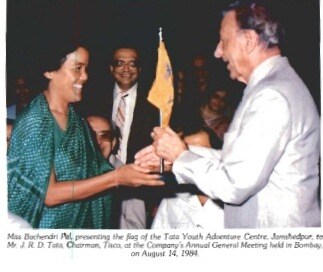
Keeping the promise alive
At a time when cricket still takes the biggest bite out of many marketers’ ad budgets, Chaudhary says, there are many sports events that have sprung up over the last few years – from badminton, volleyball, handball to chess, pushing boundaries and giving confidence to players to build their careers around it. Chaudhary says the biggest contribution that India Inc. can make is to create enough sports infrastructure, that’s for the long run. It creates a pipeline to support sportspersons in a much larger way. “If more corporates do their bit to create infrastructure, the overall sports ecosystem will take care of itself,” he adds. That apart, he also points out that there is a common misconception in the corporate world that CSR funds should be invested in sports. He has a different take. “Some bit of the CSR funds can be used for sports development initiatives but there are other priorities that need the money and attention. Bigger brands can’t park all their CSR funds for sports.”
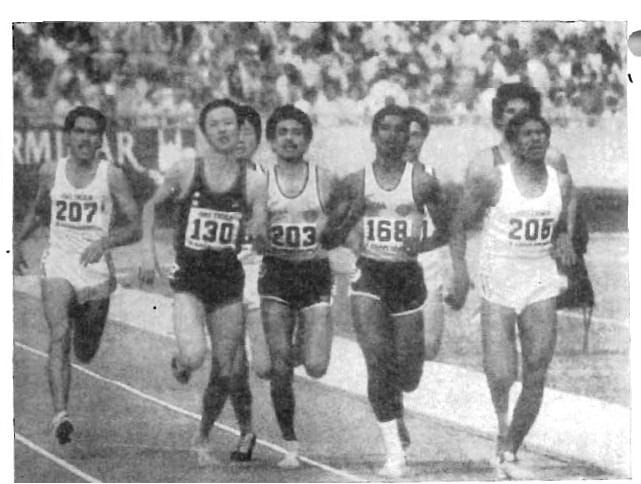
SNAPSHOT: Tata Steel’s Sports Legacy
– Tata Steel was established in India as Asia’s first integrated private steel company in 1907. The company is 115-years-old.
– Sir Dorabji Tata, the company’s first chairman, financed India’s first Olympic team to Antwerp, Belgium, in 1920.
– Tata Steel established the Jamshedpur Athletic Club in 1927 and started sports competitions for working men, women and their children.
– The company set up Tata Youth Adventure Centre, today known as the Tata Steel Adventure Foundation. This was initiated by the legendary mountaineer Bachendri Pal, the first Indian woman to climb Mt. Everest in 1984.
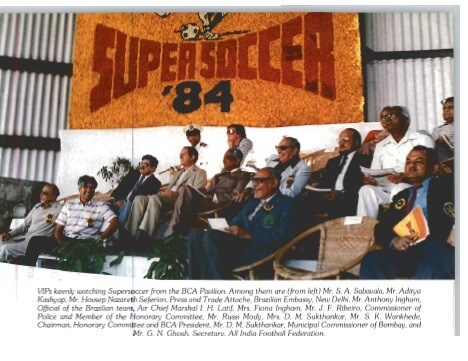
– In 1987, Tata Football Academy (TFA), the first-of-its-kind residential football academy in the country was launched.
– Of the 252 sportsmen who have graduated, so far, from TFA, 150 have represented the country, with 19 of them having captained the national team across various age groups. In 2017, for the first time, the brand ventured into the commercial aspect of sports by starting the Jamshedpur Football Club (JFC), which competes in India’s premier football League, the ISL.
– In 1989, Tata Steel launched the ‘We Also Make Steel’ campaign – one of the first brands in the country to highlight its social welfare initiatives and not its products and services. It was a TV campaign that touched on the company’s contribution across several spheres from technology and education to agriculture, sports, defence and social welfare.
– Tata Archery Academy was established in 1996 and has produced many champions like Deepika Kumari, Jayanta Talukdar, Atanu Das, Limba Ram, to name a few, who have represented India in the Olympic games.
– In 2017, Tata Steel Hockey Academy was launched in Jamshedpur and Bhubaneshwar.
– Tata Steel also runs training centres in 19 different sporting disciplines at the JRD Tata Sports Complex in Jamshedpur that trains approximately 2,500 children every year.
– Tata Steel Chess India was instituted in 2018. The company has a long-standing association with chess, having been the main sponsor of the famous chess tournament at Wijkaan Zee, The Netherlands, which is one of the most prestigious events in the international chess calendar.
– Tata Steel Adventure Foundation (TSAF) Sports Climbing Academy is India’s first sports climbing academy.
